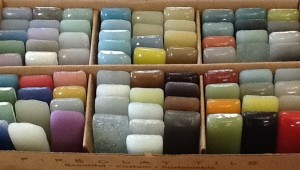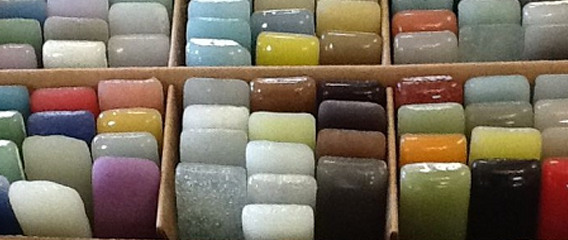Last week, I shared a video on our Facebook page about a home that’s being built entirely of materials made in the United States, from paint to nails and everything else. Just finding all the materials required a lot of effort from the builder, but don’t worry – he’s not asking everyone to do this! What he is asking is for every builder to use 5% more American-made materials to support the US economy.
We offer many products that are manufactured right here in the United States. The first few lines we carry that come to mind are from Fireclay, Market Collection, and Crossville. In fact, Market Collection tiles are made right here in Sonoma County, making it even closer to home. These companies, and others, offer a wide variety of materials, including glass, ceramic tiles, and porcelain “stone” tiles.
We also import many products; often these are things that cannot be found in the United States. Carrara marble, for example, is a well-known product that comes from Italy. If it’s not from Carrara, it’s a different product. Natural stones are just that – natural – and can’t be manufactured in the US or elsewhere (although as an alternative, some of our US companies make similar looking man-made products). Other international products are different than what you could find here. These products are unique and beautiful, and we are glad that we can get them from different places around the world.
Similar to buying local products is simply buying from local businesses. When you support a local business, you’re also supporting the other American business they work with. We work with many American companies that the big box stores don’t, we offer a wider variety of American-made materials, and we have higher quality products. Even if you buy a Turkish or Italian product from us, by supporting our business you’re helping us to continue working with our US suppliers and manufacturers. By choosing to purchase from an independent retailer you’re supporting the US economy in an important and far-reaching way.
I think the most important aspect of this 5% challenge is to be mindful of what you purchase. Rather than buying the first and cheapest thing you find, consider who you’re working with, what you’re getting for the money, and the impact your purchases may have.




